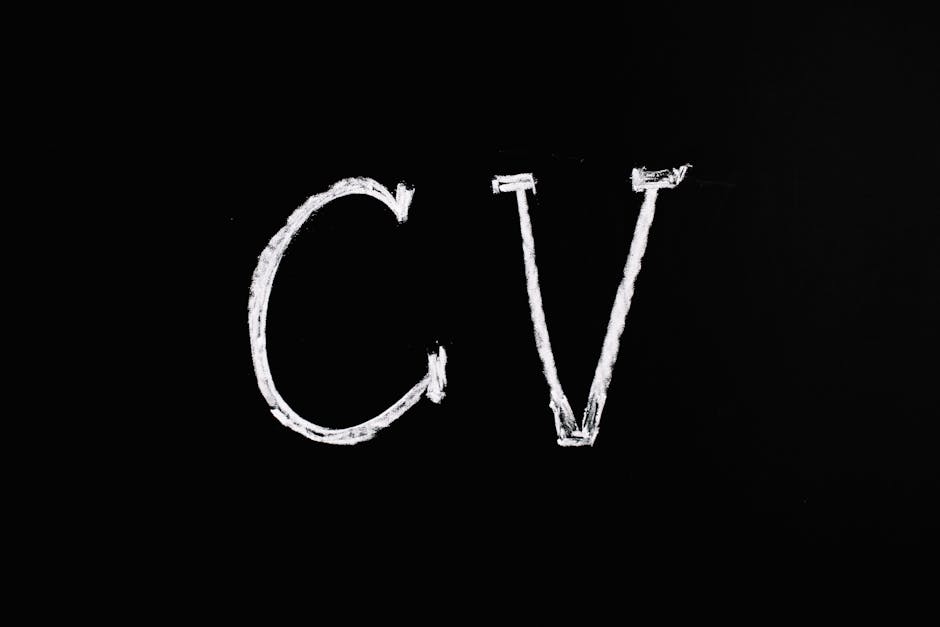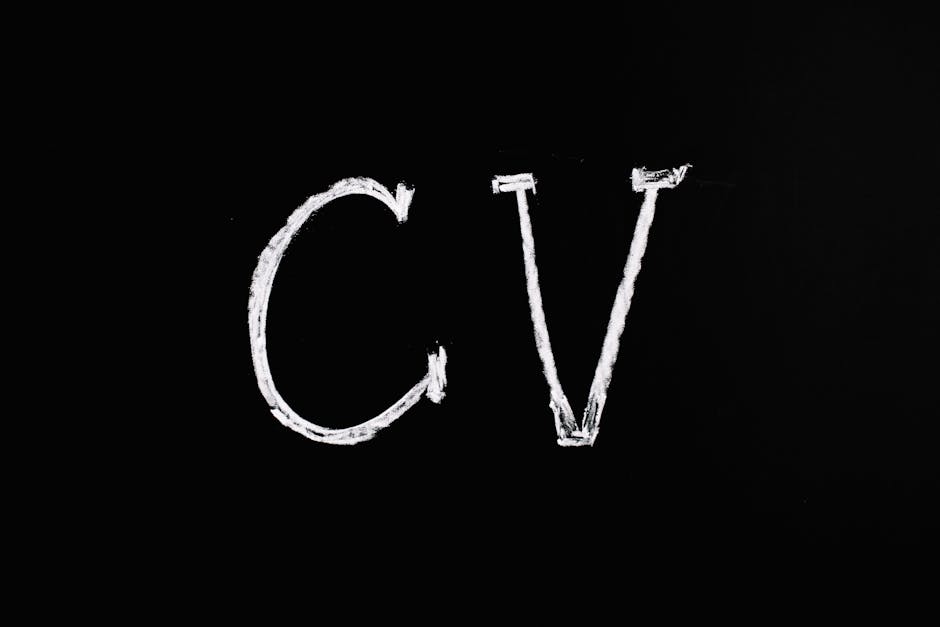Table of Contents
- Introduction
- Advanced Technology Skills
- Data Analysis and Interpretation
- Strategic Thinking and Planning
- Diversity and Inclusion Management
- Employee Engagement and Retention Strategies
- Legal Compliance and Ethics
- Change Management and Adaptability
- Leadership Development and Coaching
- Global HR Trends and Best Practices
- Q&A
- Conclusion
“Embrace technology, prioritize diversity, and lead with empathy in the HR career of tomorrow.”
Introduction
Introduction:
In order to have a successful career in Human Resources (HR) in 2025, it is essential to possess a certain set of qualifications and skills. The HR landscape is constantly evolving, and professionals in this field need to stay ahead of the curve to thrive in their roles. From technical expertise to soft skills, there are several key qualifications that will be crucial for HR professionals in the future. Let’s explore some of the essential qualifications for a successful HR career in 2025.
Advanced Technology Skills
In the ever-evolving landscape of human resources, staying ahead of the curve is essential for success. As we look ahead to 2025, it is clear that advanced technology skills will be a crucial component of a successful HR career. With the rapid advancement of technology, HR professionals must be equipped with the knowledge and skills to navigate the digital world effectively.
One of the key technology skills that HR professionals will need in 2025 is data analytics. As organizations collect more data than ever before, the ability to analyze and interpret this data will be essential for making informed decisions. HR professionals will need to be able to use data analytics tools to identify trends, patterns, and insights that can help drive strategic HR initiatives.
In addition to data analytics, HR professionals will also need to have a strong understanding of artificial intelligence (AI) and machine learning. These technologies are already being used in HR for tasks such as resume screening, employee engagement, and performance management. In 2025, HR professionals will need to be able to leverage AI and machine learning to streamline processes, improve decision-making, and enhance the employee experience.
Another important technology skill for HR professionals in 2025 is proficiency in HRIS (Human Resource Information Systems). HRIS platforms are used to manage employee data, track performance, and automate HR processes. HR professionals will need to be able to effectively use HRIS platforms to streamline administrative tasks, improve data accuracy, and enhance the overall efficiency of HR operations.
Furthermore, HR professionals will need to have a strong understanding of cybersecurity. With the increasing threat of cyber attacks, protecting employee data and ensuring the security of HR systems will be a top priority. HR professionals will need to be able to implement cybersecurity measures, educate employees on best practices, and respond effectively to security incidents.
In order to stay competitive in the field of HR, professionals will need to continuously upskill and stay current with the latest technology trends. This may involve taking courses, attending workshops, or obtaining certifications in areas such as data analytics, AI, HRIS, and cybersecurity. By investing in their technology skills, HR professionals can position themselves for success in 2025 and beyond.
In conclusion, advanced technology skills will be essential for a successful HR career in 2025. HR professionals will need to have a strong understanding of data analytics, artificial intelligence, machine learning, HRIS, and cybersecurity in order to effectively navigate the digital landscape. By investing in their technology skills and staying current with the latest trends, HR professionals can position themselves for success in the future of HR.
Data Analysis and Interpretation
In the ever-evolving landscape of human resources, the role of HR professionals has become increasingly complex and multifaceted. As we look ahead to 2025, it is clear that the demands placed on HR professionals will continue to grow, requiring a diverse set of skills and qualifications to succeed in the field. One key area that will be essential for HR professionals in 2025 is data analysis and interpretation.
Data analysis has become a critical component of HR decision-making, as organizations seek to leverage data-driven insights to improve their talent management strategies. HR professionals who possess strong data analysis skills will be better equipped to identify trends, patterns, and opportunities within their organization’s workforce data, enabling them to make more informed and strategic decisions.
To excel in data analysis, HR professionals must have a solid foundation in statistics, research methods, and data visualization techniques. They should be proficient in using data analysis tools and software, such as Excel, SPSS, or Tableau, to manipulate and analyze large datasets. Additionally, HR professionals should be able to interpret and communicate their findings effectively to key stakeholders, translating complex data into actionable insights that drive business outcomes.
In addition to data analysis skills, HR professionals in 2025 will also need to be adept at interpreting data in the context of broader organizational goals and objectives. This requires a deep understanding of the business and industry in which they operate, as well as the ability to align HR initiatives with strategic priorities. HR professionals must be able to identify how workforce data can be used to address key business challenges, such as talent retention, succession planning, or diversity and inclusion.
Furthermore, HR professionals must be able to anticipate future trends and developments in the field of HR, staying ahead of the curve to remain competitive in the job market. This requires a commitment to continuous learning and professional development, as well as a willingness to adapt to new technologies and methodologies. HR professionals who are proactive in seeking out opportunities for growth and development will be better positioned to succeed in the rapidly changing landscape of HR.
In conclusion, data analysis and interpretation will be essential qualifications for HR professionals in 2025. By developing strong data analysis skills, HR professionals can leverage workforce data to drive strategic decision-making and improve organizational performance. Additionally, HR professionals must be able to interpret data in the context of broader business goals, aligning HR initiatives with strategic priorities to deliver measurable results. By staying ahead of the curve and continuously seeking opportunities for growth and development, HR professionals can position themselves for success in the dynamic and challenging field of human resources.
Strategic Thinking and Planning
In the ever-evolving landscape of human resources, professionals must possess a unique set of skills and qualifications to succeed in their careers. As we look ahead to 2025, the role of HR is expected to become even more strategic and integral to the success of organizations. To thrive in this environment, HR professionals must be equipped with the essential qualifications that will set them apart from their peers.
One of the most critical qualifications for a successful HR career in 2025 is strategic thinking and planning. HR professionals must be able to align their department’s goals with the overall objectives of the organization. This requires a deep understanding of the business and industry in which they operate, as well as the ability to anticipate and respond to changes in the external environment.
Strategic thinking also involves the ability to identify trends and opportunities that can drive the organization forward. HR professionals must be able to think creatively and innovatively, finding new ways to attract and retain top talent, improve employee engagement, and enhance organizational performance.
In addition to strategic thinking, HR professionals must also possess strong analytical skills. Data-driven decision-making is becoming increasingly important in HR, as organizations seek to leverage technology and analytics to drive better outcomes. HR professionals must be able to collect, analyze, and interpret data to inform their decisions and measure the impact of their initiatives.
Furthermore, HR professionals must be able to communicate effectively with stakeholders at all levels of the organization. This includes not only senior leaders and executives but also employees, managers, and external partners. HR professionals must be able to convey complex information in a clear and concise manner, building trust and credibility with their audience.
Another essential qualification for a successful HR career in 2025 is adaptability and resilience. The HR landscape is constantly changing, with new technologies, regulations, and trends emerging all the time. HR professionals must be able to adapt to these changes quickly and effectively, adjusting their strategies and approaches as needed.
Moreover, HR professionals must be able to navigate ambiguity and uncertainty, making decisions in the face of incomplete information. This requires a high degree of emotional intelligence and the ability to remain calm and composed under pressure.
Finally, HR professionals must be lifelong learners, committed to continuous improvement and professional development. The HR field is constantly evolving, and professionals must stay abreast of the latest trends and best practices to remain competitive. This may involve pursuing advanced degrees, certifications, or attending conferences and workshops to expand their knowledge and skills.
In conclusion, the HR profession is undergoing a transformation, with professionals being called upon to play a more strategic role in organizations. To succeed in this environment, HR professionals must possess the essential qualifications of strategic thinking and planning, analytical skills, effective communication, adaptability and resilience, and a commitment to lifelong learning. By cultivating these qualities, HR professionals can position themselves for success in 2025 and beyond.
Diversity and Inclusion Management

In today’s rapidly changing business landscape, the role of Human Resources (HR) professionals has evolved significantly. As we look ahead to 2025, it is clear that the demand for HR professionals who are well-versed in diversity and inclusion management will continue to grow. In order to succeed in this field, there are several essential qualifications that aspiring HR professionals should possess.
One of the most important qualifications for a successful HR career in 2025 is a deep understanding of diversity and inclusion issues. This includes knowledge of relevant laws and regulations, as well as an awareness of best practices for promoting diversity and inclusion in the workplace. HR professionals must be able to create and implement policies and programs that foster a diverse and inclusive work environment, and they must also be able to effectively communicate the importance of diversity and inclusion to employees at all levels of the organization.
In addition to a strong understanding of diversity and inclusion issues, HR professionals in 2025 will also need to possess excellent communication skills. This includes the ability to effectively communicate with employees, managers, and other stakeholders, as well as the ability to listen actively and empathetically. HR professionals must be able to build relationships with employees from diverse backgrounds, and they must be able to address sensitive issues with tact and diplomacy.
Another essential qualification for a successful HR career in 2025 is a strong commitment to continuous learning and professional development. The field of HR is constantly evolving, and HR professionals must be willing to adapt to new trends and technologies in order to stay ahead of the curve. This may involve pursuing additional certifications or advanced degrees, attending conferences and workshops, or participating in professional development programs offered by industry organizations.
In addition to these qualifications, HR professionals in 2025 will also need to possess strong analytical and problem-solving skills. HR professionals must be able to collect and analyze data in order to identify trends and patterns, and they must be able to use this information to make informed decisions about recruitment, retention, and employee development. HR professionals must also be able to think critically and creatively in order to solve complex problems and address challenges in the workplace.
Finally, HR professionals in 2025 will need to possess strong leadership skills. HR professionals must be able to inspire and motivate employees, and they must be able to lead by example. This includes demonstrating a commitment to diversity and inclusion, as well as a willingness to take risks and try new approaches. HR professionals must also be able to build and lead high-performing teams, and they must be able to effectively manage conflict and resolve disputes.
In conclusion, the field of HR is evolving rapidly, and HR professionals in 2025 will need to possess a unique set of qualifications in order to succeed. By developing a deep understanding of diversity and inclusion issues, honing their communication skills, committing to continuous learning and professional development, and cultivating strong analytical, problem-solving, and leadership skills, aspiring HR professionals can position themselves for success in this dynamic and rewarding field.
Employee Engagement and Retention Strategies
In the ever-evolving landscape of human resources, the role of HR professionals has become increasingly crucial in shaping the success of organizations. As we look ahead to 2025, the demands placed on HR professionals will continue to grow, requiring a unique set of skills and qualifications to navigate the challenges of the future.
One of the key areas that HR professionals will need to focus on in 2025 is employee engagement and retention strategies. With the rise of remote work and the gig economy, organizations are facing new challenges in keeping their employees motivated and committed to their work. HR professionals will need to develop innovative strategies to foster a sense of belonging and purpose among employees, ultimately leading to higher levels of engagement and retention.
To succeed in this aspect of HR, professionals will need to possess a deep understanding of human behavior and motivation. They must be able to identify the unique needs and preferences of individual employees and tailor engagement strategies to meet those needs. This requires strong interpersonal skills, empathy, and the ability to build trust and rapport with employees at all levels of the organization.
In addition to understanding human behavior, HR professionals will also need to have a solid grasp of data analytics and technology. In 2025, data-driven decision-making will be more important than ever, as organizations seek to leverage data to improve employee engagement and retention. HR professionals will need to be able to analyze data effectively, identify trends and patterns, and use this information to inform their strategies.
Furthermore, HR professionals will need to stay abreast of the latest trends and best practices in employee engagement and retention. This will require a commitment to continuous learning and professional development, as well as a willingness to adapt to new technologies and methodologies. By staying informed and up-to-date, HR professionals can ensure that their strategies remain relevant and effective in the fast-paced world of HR.
Another essential qualification for a successful HR career in 2025 is the ability to collaborate and work effectively with other departments within the organization. Employee engagement and retention are not solely the responsibility of the HR department; they require a coordinated effort across all areas of the organization. HR professionals will need to be able to build strong relationships with colleagues in other departments, communicate effectively, and work together towards common goals.
Finally, HR professionals in 2025 will need to possess strong leadership skills. As organizations continue to evolve and adapt to changing market conditions, HR professionals will be called upon to lead and inspire their teams to achieve success. This will require a combination of vision, strategic thinking, and the ability to motivate and empower others.
In conclusion, the role of HR professionals in 2025 will be more important than ever in shaping the success of organizations. To succeed in this dynamic and challenging environment, HR professionals will need to possess a unique set of skills and qualifications, including a deep understanding of human behavior, data analytics, technology, and leadership. By developing these essential qualifications, HR professionals can position themselves for success in the future of HR.
Legal Compliance and Ethics
In the ever-evolving landscape of human resources, staying up-to-date with the latest legal compliance and ethical standards is crucial for a successful career. As we look ahead to 2025, HR professionals must possess a strong understanding of laws and regulations that govern the workplace, as well as a commitment to upholding ethical principles in their daily practices.
One of the essential qualifications for a successful HR career in 2025 is a deep knowledge of labor laws and regulations. HR professionals must be well-versed in federal, state, and local laws that govern areas such as discrimination, harassment, wage and hour regulations, and employee benefits. Keeping abreast of changes in legislation and ensuring that policies and practices are in compliance with these laws is essential to protecting both employees and the organization.
Additionally, HR professionals must have a strong understanding of ethical principles and be committed to upholding high standards of conduct in the workplace. This includes treating all employees fairly and equitably, maintaining confidentiality, and avoiding conflicts of interest. Upholding ethical standards not only fosters a positive work environment but also helps to build trust and credibility with employees and stakeholders.
In order to navigate the complex legal and ethical landscape of HR, professionals must possess strong critical thinking and problem-solving skills. They must be able to analyze situations, identify potential risks, and develop strategies to address them in a timely and effective manner. This requires the ability to think strategically, anticipate challenges, and make informed decisions that align with legal requirements and ethical standards.
Furthermore, HR professionals must have excellent communication skills in order to effectively convey legal and ethical information to employees, managers, and other stakeholders. This includes the ability to clearly articulate policies and procedures, provide guidance on legal compliance issues, and address ethical dilemmas in a professional and respectful manner. Effective communication is key to building relationships, resolving conflicts, and promoting a culture of transparency and accountability within the organization.
In addition to technical knowledge and skills, HR professionals must also possess a strong sense of integrity and a commitment to continuous learning and development. This includes staying current on industry trends, attending training and professional development opportunities, and seeking out mentorship and guidance from experienced professionals. By demonstrating a dedication to personal and professional growth, HR professionals can position themselves for success in a rapidly changing and competitive field.
In conclusion, the essential qualifications for a successful HR career in 2025 include a deep knowledge of legal compliance and ethical standards, strong critical thinking and problem-solving skills, excellent communication abilities, and a commitment to integrity and continuous learning. By cultivating these qualities and staying current on industry trends, HR professionals can position themselves as trusted advisors and strategic partners within their organizations. As the role of HR continues to evolve, those who possess these essential qualifications will be well-equipped to navigate the challenges and opportunities that lie ahead.
Change Management and Adaptability
In the ever-evolving landscape of human resources, change management and adaptability have become essential qualifications for a successful HR career in 2025. As organizations continue to navigate through unprecedented challenges such as technological advancements, globalization, and the impact of the COVID-19 pandemic, HR professionals must possess the skills and mindset to effectively lead their teams through change and uncertainty.
One of the key aspects of change management is the ability to anticipate and proactively respond to shifts in the business environment. HR professionals must stay informed about industry trends, regulatory changes, and emerging technologies that could impact their organization. By staying ahead of the curve, HR professionals can develop strategies to mitigate risks and capitalize on opportunities that arise from change.
Adaptability is another crucial skill for HR professionals in 2025. As the pace of change accelerates, HR professionals must be flexible and open-minded in their approach to problem-solving. They must be willing to embrace new ideas, experiment with different solutions, and pivot quickly when faced with unexpected challenges. By cultivating a culture of adaptability within their teams, HR professionals can foster resilience and innovation in the face of uncertainty.
Effective communication is also essential for successful change management in HR. HR professionals must be able to clearly articulate the reasons for change, engage stakeholders in the process, and address any concerns or resistance that may arise. By fostering open and transparent communication, HR professionals can build trust and credibility with their teams, which is crucial for navigating through periods of change.
Collaboration is another key aspect of successful change management in HR. HR professionals must work closely with other departments, such as IT, finance, and operations, to ensure that change initiatives are aligned with the overall strategic goals of the organization. By fostering a collaborative mindset, HR professionals can leverage the diverse skills and perspectives of their colleagues to drive successful change initiatives.
In addition to these skills, HR professionals must also possess a strong understanding of technology and data analytics in 2025. As organizations increasingly rely on data-driven insights to make strategic decisions, HR professionals must be able to leverage technology to collect, analyze, and interpret data related to their workforce. By using data analytics, HR professionals can identify trends, predict future needs, and measure the impact of their change initiatives.
Finally, emotional intelligence is a critical qualification for HR professionals in 2025. As change can be a stressful and emotional process for employees, HR professionals must be able to empathize with their colleagues, understand their concerns, and provide support during times of transition. By demonstrating empathy and emotional intelligence, HR professionals can build strong relationships with their teams and foster a positive organizational culture that supports change and adaptation.
In conclusion, change management and adaptability are essential qualifications for a successful HR career in 2025. By developing skills in these areas, HR professionals can effectively lead their teams through periods of change and uncertainty, drive innovation and growth within their organizations, and position themselves as strategic partners in the business. By staying informed, flexible, and collaborative, HR professionals can thrive in the dynamic and fast-paced world of human resources in 2025 and beyond.
Leadership Development and Coaching
In the ever-evolving landscape of human resources, the role of HR professionals has become increasingly complex and multifaceted. As we look ahead to 2025, it is clear that the demands placed on HR professionals will continue to grow, requiring a unique set of skills and qualifications to succeed in this dynamic field.
One of the essential qualifications for a successful HR career in 2025 is strong leadership skills. HR professionals are often called upon to lead teams, manage conflicts, and drive organizational change. To excel in these areas, HR professionals must possess the ability to inspire and motivate others, communicate effectively, and make sound decisions under pressure. Leadership development programs and coaching can help HR professionals hone these skills and prepare them for the challenges they will face in their roles.
In addition to leadership skills, HR professionals in 2025 will need to be adept at coaching and mentoring others. As organizations become more focused on employee development and engagement, HR professionals will play a crucial role in helping employees reach their full potential. By providing guidance, support, and feedback, HR professionals can help employees grow and succeed in their roles. Coaching and mentoring programs can help HR professionals develop the skills they need to effectively support and develop their teams.
Another essential qualification for a successful HR career in 2025 is a deep understanding of technology and data analytics. As technology continues to transform the way we work, HR professionals must be able to leverage data and analytics to make informed decisions and drive strategic initiatives. By using data to identify trends, predict future outcomes, and measure the impact of HR programs, HR professionals can demonstrate the value they bring to their organizations. Training in data analytics and technology will be essential for HR professionals looking to stay ahead of the curve in 2025.
In addition to leadership, coaching, and technology skills, HR professionals in 2025 will need to possess a strong understanding of diversity, equity, and inclusion. As organizations become more diverse and globalized, HR professionals must be able to create inclusive workplaces where all employees feel valued and respected. By promoting diversity and inclusion initiatives, HR professionals can help organizations attract and retain top talent, drive innovation, and improve employee engagement. Training in diversity, equity, and inclusion will be essential for HR professionals looking to create inclusive workplaces in 2025.
In conclusion, the field of human resources is evolving rapidly, and HR professionals in 2025 will need to possess a unique set of skills and qualifications to succeed in this dynamic environment. Strong leadership skills, coaching and mentoring abilities, technology and data analytics expertise, and a deep understanding of diversity, equity, and inclusion will be essential for HR professionals looking to make a positive impact in their organizations. By investing in leadership development and coaching programs, HR professionals can prepare themselves for the challenges and opportunities that lie ahead in 2025.
Global HR Trends and Best Practices
In today’s rapidly evolving global business landscape, the role of human resources (HR) professionals has become increasingly crucial. As we look ahead to 2025, the HR industry is expected to undergo significant changes, driven by technological advancements, shifting workforce demographics, and evolving business needs. To thrive in this dynamic environment, HR professionals must possess a diverse set of skills and qualifications that will enable them to effectively navigate the challenges and opportunities that lie ahead.
One of the key qualifications for a successful HR career in 2025 is a strong foundation in data analytics and technology. As organizations continue to rely on data-driven insights to make strategic decisions, HR professionals must be adept at leveraging analytics tools to drive workforce planning, recruitment, and performance management. In addition, proficiency in emerging technologies such as artificial intelligence and machine learning will be essential for HR professionals to streamline processes, enhance employee experiences, and stay ahead of the curve in a rapidly digitizing world.
Another critical qualification for HR professionals in 2025 is a deep understanding of diversity, equity, and inclusion (DEI) principles. With workforce demographics becoming increasingly diverse, organizations are placing a greater emphasis on creating inclusive and equitable workplaces that foster belonging and respect for all employees. HR professionals who possess the knowledge and skills to champion DEI initiatives, address unconscious bias, and promote a culture of belonging will be well-positioned to drive organizational success and employee engagement in the years to come.
In addition to technical skills and DEI expertise, HR professionals in 2025 must also possess strong interpersonal and communication skills. As the role of HR continues to evolve from a transactional to a strategic function, the ability to build relationships, influence stakeholders, and communicate effectively will be critical for driving organizational change and fostering a culture of collaboration and innovation. HR professionals who can effectively navigate complex interpersonal dynamics, resolve conflicts, and inspire trust and confidence in their colleagues will be invaluable assets to their organizations in the years ahead.
Furthermore, HR professionals in 2025 must be agile and adaptable in the face of constant change and uncertainty. The ability to quickly pivot, learn new skills, and embrace innovation will be essential for HR professionals to stay relevant and competitive in a rapidly evolving business environment. By cultivating a growth mindset, seeking out continuous learning opportunities, and embracing new challenges with resilience and optimism, HR professionals can position themselves for long-term success and career advancement in the years to come.
In conclusion, the HR industry is poised for significant transformation in 2025, driven by technological advancements, shifting workforce demographics, and evolving business needs. To thrive in this dynamic environment, HR professionals must possess a diverse set of skills and qualifications that will enable them to effectively navigate the challenges and opportunities that lie ahead. By cultivating a strong foundation in data analytics and technology, a deep understanding of DEI principles, strong interpersonal and communication skills, and agility and adaptability, HR professionals can position themselves for success and make a meaningful impact in their organizations and the broader HR profession.
Q&A
1. What are the essential qualifications for a successful HR career in 2025?
– A bachelor’s degree in HR or related field
– Relevant work experience in HR
– Strong communication and interpersonal skills
– Knowledge of HR laws and regulations
– Proficiency in HR software and technology
2. Is a master’s degree necessary for a successful HR career in 2025?
– While not necessary, a master’s degree can provide a competitive edge in the HR field.
3. What soft skills are important for a successful HR career in 2025?
– Empathy
– Conflict resolution
– Problem-solving
– Adaptability
– Emotional intelligence
4. How important is experience in HR for a successful career in 2025?
– Experience in HR is crucial for understanding the complexities of the field and developing practical skills.
5. What role does technology play in a successful HR career in 2025?
– Proficiency in HR software and technology is essential for streamlining processes and staying competitive in the field.
6. Are certifications necessary for a successful HR career in 2025?
– While not necessary, certifications can demonstrate expertise in specific areas of HR and enhance career prospects.
7. How important is networking for a successful HR career in 2025?
– Networking is crucial for building relationships, staying informed about industry trends, and advancing in the HR field.
8. What role does continuous learning play in a successful HR career in 2025?
– Continuous learning is essential for staying updated on HR best practices, trends, and regulations.
9. How important is cultural competence for a successful HR career in 2025?
– Cultural competence is crucial for understanding and effectively working with diverse employees and creating an inclusive workplace environment.
Conclusion
In conclusion, the essential qualifications for a successful HR career in 2025 will likely include a strong understanding of technology and data analytics, excellent communication and interpersonal skills, adaptability to changing workplace dynamics, and a commitment to continuous learning and development. Additionally, HR professionals will need to possess a deep understanding of diversity, equity, and inclusion practices to effectively support a diverse workforce. By acquiring these qualifications, HR professionals can thrive in the evolving landscape of human resources in the future.





